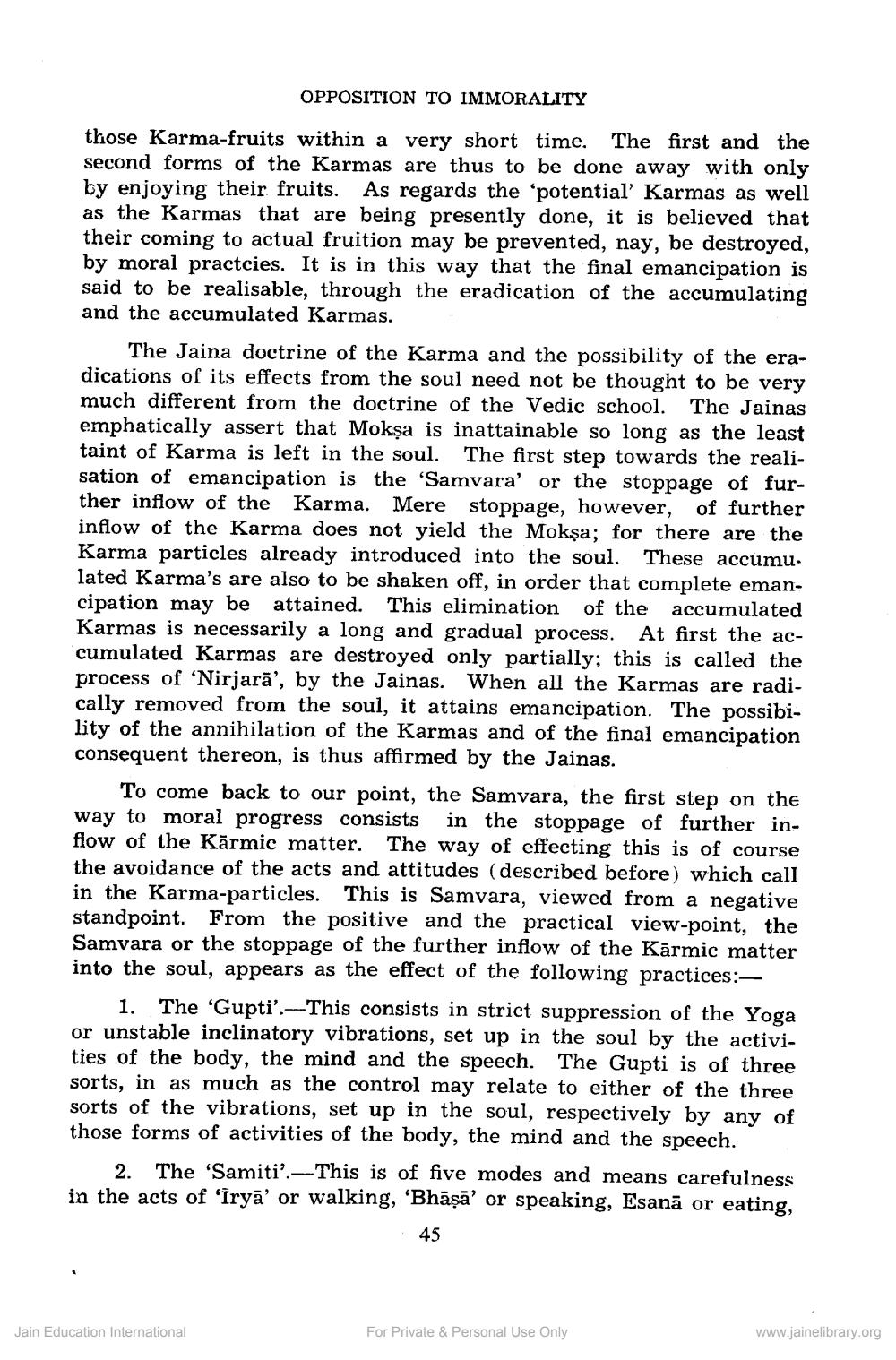________________
OPPOSITION TO IMMORALITY
those Karma-fruits within a very short time. The first and the second forms of the Karmas are thus to be done away with only by enjoying their fruits. As regards the 'potential' Karmas as well as the Karmas that are being presently done, it is believed that their coming to actual fruition may be prevented, nay, be destroyed, by moral practcies. It is in this way that the final emancipation is said to be realisable, through the eradication of the accumulating and the accumulated Karmas.
The Jaina doctrine of the Karma and the possibility of the eradications of its effects from the soul need not be thought to be very much different from the doctrine of the Vedic school. The Jainas emphatically assert that Moksa is inattainable so long as the least taint of Karma is left in the soul. The first step towards the realisation of emancipation is the 'Samvara' or the stoppage of further inflow of the Karma Mere stoppage, however, of further inflow of the Karma does not yield the Mokşa; for there are the Karma particles already introduced into the soul. These accumu. lated Karma's are also to be shaken off, in order that complete emancipation may be attained. This elimination of the accumulated Karmas is necessarily a long and gradual process. At first the accumulated Karmas are destroyed only partially; this is called the process of 'Nirjarā', by the Jainas. When all the Karmas are radically removed from the soul, it attains emancipation. The possibility of the annihilation of the Karmas and of the final emancipation consequent thereon, is thus affirmed by the Jainas.
To come back to our point, the Samvara, the first step on the way to moral progress consists in the stoppage of further inflow of the Kārmic matter. The way of effecting this is of course the avoidance of the acts and attitudes (described before) which call
he Karma-particles. This is Samvara, viewed from a negative standpoint. From the positive and the practical view-point, the Samvara or the stoppage of the further inflow of the Kārmic matter into the soul, appears as the effect of the following practices:
1. The 'Gupti'.- This consists in strict suppression of the Yoga or unstable inclinatory vibrations, set up in the soul by the activities of the body, the mind and the speech. The Gupti is of three sorts, in as much as the control may relate to either of the three sorts of the vibrations, set up in the soul, respectively by any of those forms of activities of the body, the mind and the speech.
2. The 'Samiti'. - This is of five modes and means carefulness in the acts of 'iryā' or walking, 'Bhāsā' or speaking, Esanā or eating,
45
Jain Education International
For Private & Personal Use Only
www.jainelibrary.org




